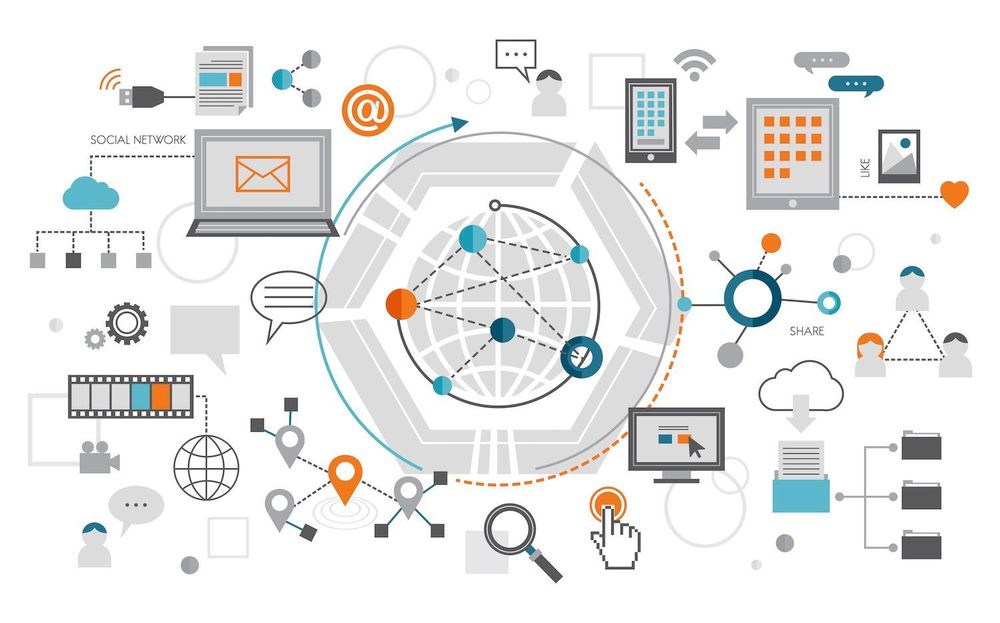Terms

"What is gross income?" "What is net income?" "How do the differences between gross and net income influence my business?" Do these questions are familiar? We are aware that financial matters as well as taxation can be somewhat complicated for digital content creators. There are numerous technical rules and regulations However, these rules can vary depending on various factors, including your place where you reside, the kind of content that you make along with your business organization's structure and source of income. In addition, tax regulations may be changed. There is help accessible!
The guide was created to assist you in understanding gross and net income as well as other aspects. We hope you'll appreciate this resource, however you should also consult with your accountant or tax expert for advice on particular circumstances in your specific area of. In this article, we'll discuss tax legislation and its implications within the USA.
Important definitions
We'll start from the very beginning. Finance can be a bit hazy and suffused with terms and phrases. Below are some basic tax concepts that digital content creators need to know.
Taxes on income
Publishers and creators of online content generally are classified as independent contractors or self-employed. This means that you are required to declare and pay taxes on the income you earn.
Tax estimates
Digital content creators aren't exempt from taxation in the same manner as employees. Tax is automatically deducted from their earnings, and later handed over into the American government. America.
Publishers and creators may have to pay estimated tax each quarter. Estimated tax amount are used for income tax and self-employment tax. It is essential to determine what tax amount you need to pay to avoid having to have to pay penalties and interest.
Costs of business
Other expenses that are justifiable include marketing and advertising costs as well as professional services such as the hire of a graphic designer as and home office expenses like furniture, if suitable. Recording these expenses are essential in order to be sure deductions are made in a timely manner.
Taxation of self-employment
Taxes for self-employment differ from income tax, and they cover social security advantages (in the USA). Self-employed creators of digital content, they are required to pay both the employer and employee portion of taxes. It is crucial to take into consideration these tax rates when you calculate your tax liabilities total.
Sales tax
Based on the place of operation and the characteristics of the digital product along with the items or services that they provide, Creators of content may be legally required to be able to collect sales tax and also pay it. The rules and limits of sales tax may differ based upon the nation of origin, making it important to understand the precise conditions in your region of operation. Digital platforms to manage items can assist in ensuring the compliance of sales tax.
The structure of the company
Selecting the best corporate structure for your business, such as the sole proprietorship, Limited Liability Company( LLC) or one that is tax-related. Each structure type has advantages and disadvantages regarding taxes and liabilities as well as reporting requirements.
Tax professionals can help you in choosing the suitable structure for your particular circumstance. Go to the IRS website to find out more on tax laws that affect small businesses as well as LLCs.
Net income is distinct from. Gross income. What's your distinction?
The major distinction between net and gross income lies in the quantity of deductions and expenses that subtract from the latter for the calculation of the first. Net income comprises a wide range of costs, like expenses for operations, such as wages for employees, taxes, and interest charges. These deductions are essential to determine the likelihood of financial prosperity and potential of a company or a person.
Net income refers to what you think it means.
Net income, also called"the bottom line," signifies the amount an individual or business earns after subtracting all costs and taxes from the total revenues. It is a crucial measurement of financial performance that offers an insight into the performance of the business's finances and overall financial standing of the business. Net income usually is calculated over a particular time period which could include the month, quarter, or even a year.
What is the definition of gross earnings?
Gross income, also referred to as total revenue is the total amount of income earned by an individual company in the form of a company, institution or other, regardless of expense or deductions. It includes the income sources available, which includes the revenue from rents and sales rental revenues, the interest earned and other income sources.
Gross income provides a snapshot of earnings overall, with no regard to the cost associated with running a company or personal finances.
The differences between net income and gross income
Knowing the distinction between net income as well as gross income is vital to the effective plan of the financials of businesses that are based on membership. On the basis of these figures, business's creators are able to plan their budgets, create realistic financial goals, and make educated decisions about the allocation of their earnings.
If you are managing your finances, growing your business, or investing in new opportunities, having a clear understanding of net income and gross income is essential.
One of the main implications of the differences between gross and net income for people who create and those who manage membership businesses:
Tax consequences in calculating net income tax implications are a major impact. Taxes due by an individual or company are typically taken out of the gross earnings for the purpose of calculate the net income figure.
Taxes depend on the location and laws governing taxation that are applicable to an enterprise. It is essential to understand the tax consequences in order to develop a sound financial plan and staying within the tax law.
Analytical analysis of financials The net income can be an essential element to consider when making the financial analysis and taking decision. It can be used by both companies and individuals to gauge their financial condition, evaluate the capability of their company to generate money and also assess the performance of their financials their business over the course of.
A comparison of the net income for different time periods will reveal patterns as well as trends, strengths and areas that require of improvement.
What's the most efficient way to make sure you pay the taxes on self-employment?
To pay tax on self-employment in the United States, you need comply with the steps below:
Apply for an Employer Identification Number (EIN): If you don't have An EIN number, you're eligible to apply for one through the Internal Revenue Service (IRS) on their official website. Make sure you keep current documents. The accuracy of your records is vital for tax plan. Digital content creators need to keep a complete record of their income expenses and receipts. Invoices, receipts, and other financial documents. This will facilitate the process of filing taxes and help ensure that you are in compliance with tax law. Determine your net income: Calculate your net earnings from self-employment by subtracting the costs of business from the total income earned by self-employment. The entire Scheduling Make use of the Schedule SE (Self-Employment Tax) to figure out how much self-employment tax you are liable for. You can access it on the IRS website or fill out on the internet using software to do tax calculations. Tax return filing Attach Schedule SE to your tax return each year. This is generally the form 1040 or 1040-SR. Your tax return should include the self-employment earnings in Schedule C or C-EZ. Pay your self-employment taxes: Pay the self-employment tax due and the other taxes you might have to pay while filing taxes. The tax can be paid using a number of different methods such as electronic funds withdrawals, like credit cards, checks and debit cards. The IRS offers a payment method online, known as"the Electronic Federal Tax Payment System (EFTPS) for making payment. Consider an estimated tax payment If you anticipate to pay greater than $1000 in tax it is possible to estimate tax payments all through the year. Tax estimates usually are due on a quarterly basis and may be submitted via the IRS site, or by post using the Form 1040-ES.
Final verdict: Gross income vs. net income - and how it impacts your financial situation
To conclude, knowing the distinctions between gross and net income is crucial for authors as well as publishers, and for entrepreneurs. Although gross income is the sum of earnings prior to deductions and expenditures, net income gives a more accurate view of the financial performance since it accounts for the tax deduction as well as expenditures.
If you are conscious of these financial metric you'll be able to make more informed decisions, organize your finances effectively and assess your financial results with precision. Keep in mind that success with money comes from having a clear understanding of your expenses, earnings, and the interactions between these.
Article was first seen on this site
Article was first seen on here
